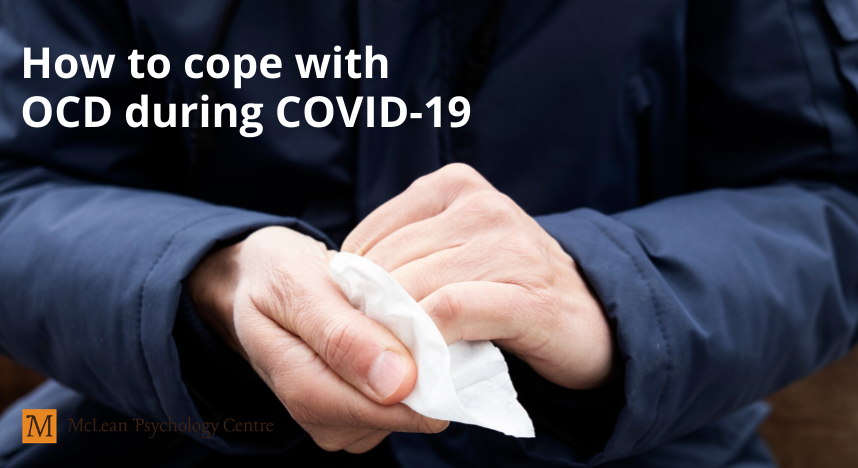Frequently Asked Questions
How do I make an appointment?
If you are looking for help, booking a consultation is the first step in finding the change, answer, or assistance you are looking for.
Click here to request a consultation, or call us today at (289) 763-7076.
If you are already a client, please contact your clinician for booking methods or call us at (289) 763-7076.
What is a Registered Psychologist?
A Registered Psychologist is licensed to practice by their provincial college such as College of Psychologists of Ontario. They have completed a Master’s or doctoral degree in clinical psychology, as well as a post-doctoral year of supervised practice and registration examinations. They are licensed to diagnose and treat mental disorders as well as help people with more everyday issues.
What is the difference between a Psychologist, Psychological Associate, Registered Psychotherapist, and a Psychiatrist?
A Psychiatrist is a licensed medical doctor, who has specialized in the area of psychiatry. In general, they use a medical model to assess, diagnose, and treat mental health problems, and have the ability to prescribe medication.
A Psychologist and a Psychological Associate are licensed to provide psychological services (assessment, diagnosis and treatment) through the College of Psychologists of Ontario. Psychologists have completed a Ph.D. or Psy.D. (doctoral) in clinical psychology and completed a year long internship before beginning their registration process with the college. Psychological Associates have a Master’s degree in clinical psychology, and go through the same supervised practice and registration process as Psychologists.
There is a new regulatory body called the College of Psychotherapists of Ontario. It was formed to protect the public from counsellors or coaches from various disciplines that provide services without being regulated by a governing body. The College of Psychotherapists of Ontario ensures that Registered Psychotherapists have enough training and are licensed to provide the “controlled act” of psychotherapy. They usually have a Master’s degree in psychology. This designations assures you that they must follow the code of ethics, standards and regulations set out by their college and the Psychotherapy Act, similar to the College of Psychologists of Ontario.
Most extended health care insurance plans have some coverage for you to see Psychologists and Psychological Associates. Some of these insurance companies are now covering Registered Psychotherapists. Check with your health insurance provider for your details.
What is psychotherapy and what are the different types of therapy?
Psychotherapy with a Registered Psychologist is most easily described as ‘talk therapy.’ It involves open communication between therapist and client, focused on the clients goals. Through psychotherapy sessions one can come to:
- understand oneself better,
- reduce symptoms of distress,
- learn healthy ways of coping, and
- improve communication in relationships.
Psychotherapy is a proven alternative to, or adjunct to medication treatment for anxiety and/or depression. At McLean Psychology Centre, Cognitive Behaviour Therapy (CBT) is a primary approach; however, other therapeutic approaches are often integrated according to the client’s needs. Other approaches include: Emotion Focused Therapy (EFT) and Solution Focused Brief Therapy.
Do I need a referral?
No, you do not need a referral from your family doctor in order to book an appointment with McLean Psychology Centre.
In some cases, your extended health insurance plan may require a referral from your family doctor, but many do not. It may be wise to check first.
We do like to connect with your family doctor. At your first appointment you will be asked if we can send a basic letter to them outlining your contact with us. If you choose to give consent, we will link with them.
What should I expect from my consultation?
In the first consultation we will be asking you for your personal and health history, current problems, stressors, and supports. We will also work towards a diagnosis if that is appropriate, and come up with a recommended course of action that may include a treatment plan with us, but it may also include other recommendations.
Sometimes it takes a second session and more information to complete a diagnosis and recommended treatment plan. Your clinician will discuss this with you fully at your consultation.
How much does therapy cost?
Fees range from $150 to $225 a session, and sessions are one hour in length.
Costs are often covered by extended medical health benefits, auto insurance (if you’ve been in an accident), or through “return to work” insurance benefits. It is best to call your benefit provider before beginning treatment to determine what is covered.
Fees are also considered a medical expense by Revenue Canada, and some people qualify for a Medical Expense Tax Credit.
We can also work within what your budget allows and you can space your appointments out as needed.
Keep in mind, getting help to get and stay healthy may be the best money you’ve ever spent.
How long will therapy go on for?
Some people come to us to get help for a specific problem area. In this case, it may only be a few sessions that will get you to your goal, depending on the severity or complexity. Complex or severe difficulties may take longer.
We will also make other recommendations to you that might include reviewing medication with your doctor, taking an online course for depression or anxiety, or expanding your support network. These recommendations will be tailored to your specific needs.
We will work within what your budget allows and you can space your appointments out as needed.
Keep in mind, getting help to get and stay healthy may be the best money you’ve ever spent.
Is there a waiting list?
Some of our clinicians may have wait lists, but many have availability within a couple of weeks. If it is important to you to be seen soon please let us know, and we will match you to someone with the closest availability.
Can I get coverage for treatment?
You may have coverage for Psychologists or Psychological Associates through your extended medical plan or your spouse’s plan.
If you are a veteran, a member of the armed forces, or a First Nations person, you have coverage for psychological treatment. Also, if you have been in a car accident or have been injured at work you may have access to treatment at no cost. If you have been a victim of crime, the Criminal Injuries Compensation Board will often pay for your psychological treatment. At the end of each session you are expected to pay by credit card, debit, cheque or cash for your session. You will be provided with a receipt you can submit to your insurance company or other provider, who will reimburse you for your payment. We are happy to help with information on this process.What is confidential and what is not?
You must provide consent for us to discuss or release personal information to someone else, such as family member or your lawyer. If you are covered under automobile or workplace accident insurance, some plans insist that certain information is provided for coverage (e.g. diagnosis, progress reports).
Five legal exceptions to therapist-client confidentiality include:
- If you pose an imminent (immediate, serious) risk to yourself, e.g. you have a definite plan and intention of killing yourself that day.
- If you pose an imminent (immediate, serious) risk to someone else. This includes driving while intoxicated, or if you are knowingly HIV-positive and have unprotected sex without informing your partner(s).
- If you disclose that a child, under age 16, is being abused or is at risk of harm. There is legislation making it mandatory to release this information to Children’s Aid Society.
- If you disclose that a health professional sexually abused or sexually harassed you.
- If disclosure of therapy information is ordered by subpoena or court order. This is extremely rare and would only happen if you are involved in a legal situation, court charges or proceedings.
If in doubt about disclosing, please feel free to discuss these conditions with us, and we can provide you with guidelines or hypothetical examples.
Can I call you if I am in crisis or suicidal?
We are not a crisis or emergency service and it may take too long for an urgent message to get through to us.
If you are suicidal you need to call 911 or proceed to your local emergency department. Hospitals have mental health crisis teams working out of their emergency departments and are best equipped to help you.
You may also call the mental health distress line for York Support Services Network (YSSN) at 1-855-310-COPE (2673), or any of the numbers below.
Please feel free to leave a message for your clinician if you would like a call and they will follow-up with you – but this is not emergency or crisis care.
Crisis Lines
- ConnexOntario Mental Health Helpline: 1-866-531-2600 (24 hours, 7 days a week)
- York Support Services Network (YSSN) Community Crisis Response Service: 1-855-310-COPE (2673) (24 hours, 7 days a week)
- The Markham Stouffville Hospital Crisis Team: Emergency Department, 905-472-7111; Mental Health Clinic, 905-472-7556 (24 hours, 7 days a week)
What are suicidal thoughts?
Suicidal thoughts, or suicidal ideation, are warning signs that you need to get to mental health care.
They may be fleeting thoughts about wanting to escape or end a situation, or despair you are feeling. It may also be a preoccupation with your death, or it may be thoughts that include planning and carrying out a suicide, which are more dangerous.
If you are having any of these type of thoughts you need to get to help.
If the thoughts are strong and urging you to do something harmful, you need to call 911, a local distress centre, or go to your local emergency department.
Crisis Lines
- ConnexOntario Mental Health Helpline: 1-866-531-2600 (24 hours, 7 days a week)
- York Support Services Network (YSSN) Community Crisis Response Service: 1-855-310-COPE (2673) (24 hours, 7 days a week)
- The Markham Stouffville Hospital Crisis Team: Emergency Department, 905-472-7111; Mental Health Clinic, 905-472-7556 (24 hours, 7 days a week)
Do you prescribe medications?
No, psychologists do not prescribe medications. Your family doctor or a psychiatrist are able to prescribe medications for you, and we may recommend a medication review with your family doctor.
What if I don't like my psychologist?
If you don’t feel you are a great match with your psychologist, let us know — no explanation required.
Our Best Match Policy is our commitment to getting you to the clinician who you feel most comfortable with, and who has expertise in what you need help with – at our practice or elsewhere.
Will McLean Psychology Centre do work on my injury or disability legal case?
At McLean Psychology Centre it is our mission to help people recover from mental health difficulties and get on the road to health and well-being. We do not take clients on who are engaged in legal disputes regarding injury or disability compensation. We find that after legal cases are settled clients are better able to engage in the process of getting better, and we’d be happy to take you as a client then.
Can I get a note for my short or long-term disability insurer?
It is our policy that we don’t write notes or complete forms regarding short-term or long-term disability for clients until we have known them long enough to assess issues regarding disability and prognosis. Please feel free to discuss this further with your clinician. We are happy to send a brief letter regarding your therapy to your family doctor.






